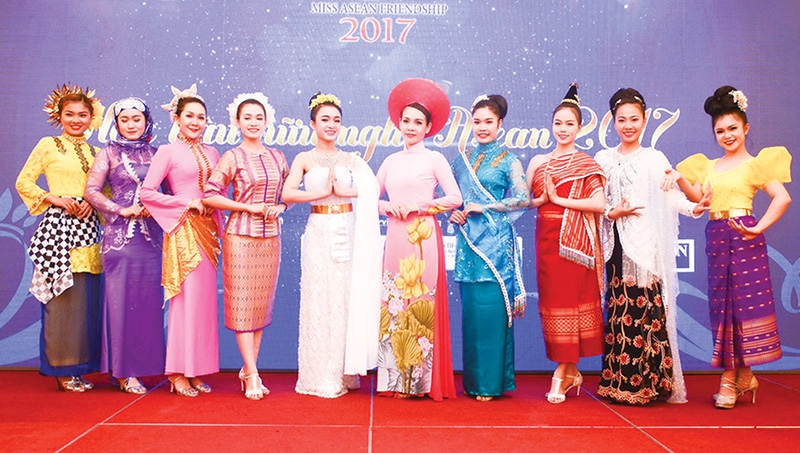ASEAN set to sign historic regional partnership treaty
 |
| ASEAN members expect the agreement to bring much-needed unity and cohesion |
According to a source from the Ministry of Foreign Affairs, all preparations have been made for the organisation this week of the 37th ASEAN Summit and the inking of the Regional Comprehensive Economic Partnership (RECP) between ASEAN and its five partners of Australia, China, Japan, New Zealand, and South Korea. India dropped out of negotiations last year.
The participants believe that the RCEP is necessary to ASEAN and its partners who, like all nations in the world, are seriously hurt by the health crisis and require economic spurs. Once signed, the deal will cover more than 2.2 billion people or 30 per cent of the world’s population, GDP of over $25.6 trillion (29.3 per cent of global GDP), and a trade value of more than $10.4 trillion, or 27.4 per cent of global trade. The 37th ASEAN Summit and related meetings will be organised online on November 12-15, with Hanoi as the host city as it will be chaired by Prime Minister Nguyen Xuan Phuc.
The event will include about 20 large-scale meetings and many other related events, with a record number of over 80 documents and agreements to be inked and adopted. It is expected that the event will be joined by leaders of all ASEAN nations and the bloc’s partners and other major countries with interest. Partners include China, the United States, Russia, Japan, South Korea, India, Australia, and New Zealand.
At the ASEAN Business and Investment Summit, deemed the most anticipated event for the region’s business community, PM Phuc will continue calling for more investment from ASEAN nations and the bloc’s partners.
Themed “Digital ASEAN: Sustainability and Inclusiveness”, this event is expected to see the attendance of senior leaders from all 10 member countries as well as eight ASEAN dialogue partners.
It will also focus on six topics – ASEAN’s economic outlook, technologies and future jobs, innovative agriculture, green growth through good governance, logistics and smart cities, and innovative ASEAN and digital startups.
“We must attract more investment from regional nations and ASEAN’s partner countries. Vietnam will continue offering the best conditions for enterprises and investors, especially now the country has successfully control the pandemic,” PM Phuc said. “We will also further boost cooperation with the nations to expand trade.”
As one of the main pillars, the ASEAN Economic Community is aimed to create a tariff-free zone for all traded goods and services, while setting a timetable for removal of non-tariff barriers regionwide.
The ASEAN-6 nations, which are the region’s most developed economies of Brunei, Indonesia, Malaysia, the Philippines, Singapore, and Thailand, erased 99 per cent of their import tariff lines by 2010. Meanwhile, the remaining nations – Cambodia, Laos, Myanmar, and Vietnam – removed 90 per cent of their import tariff lines in 2015.
Over the past year the remaining 10 per cent of tariff lines are being removed by Vietnam, focusing on items such as steel, motorbikes and spare parts, wine and beer, and plastics and paper, as well as sensitive agricultural items like poultry, eggs, sectioned fruit, rice, processed meat, and sugar.
ASEAN is now Vietnam’s fourth-largest export market after the US, the EU, and China. Vietnam’s export turnover to the region surged from under $1 billion in 1995 to $24.7 billion in 2018 and $25.3 billion last year, up 1.9 per cent on-year. In the first 10 months of 2020, the figure hit $19 billion, down 11.6 per cent on-year. Meanwhile, Southeast Asia is also Vietnam’s third-largest import market. The country’s import turnover from other member states totalled $28 billion in 2017, $32 billion in 2018, and $32.1 billion last year. The figure touched $24.4 billion in the first 10 months of 2020, down 8.5 per cent on-year.
As of September 20, Vietnam attracted over $81 billion in registered investment capital from ASEAN member states, including Singapore (over $55 billion), Thailand ($12.4 billion), Malaysia ($12.77 billion), Indonesia ($590.6 million), and the Philippines ($265.3 million).
What the stars mean:
★ Poor ★ ★ Promising ★★★ Good ★★★★ Very good ★★★★★ Exceptional
Related Contents
Latest News
More News
- Vietnamese businesses diversify amid global trade shifts (February 03, 2026 | 17:18)
- Consumer finance sector posts sharp profit growth (February 03, 2026 | 13:05)
- Vietnam and US to launch sixth trade negotiation round (January 30, 2026 | 15:19)
- NAB Innovation Centre underscores Vietnam’s appeal for tech investment (January 30, 2026 | 11:16)
- Vietnam moves towards market-based fuel management with E10 rollout (January 30, 2026 | 11:10)
- Vietnam startup funding enters a period of capital reset (January 30, 2026 | 11:06)
- Vietnam strengthens public debt management with World Bank and IMF (January 30, 2026 | 11:00)
- PM inspects APEC 2027 project progress in An Giang province (January 29, 2026 | 09:00)
- Vietnam among the world’s top 15 trading nations (January 28, 2026 | 17:12)
- Vietnam accelerates preparations for arbitration centre linked to new financial hub (January 28, 2026 | 17:09)

 Tag:
Tag:




















 Mobile Version
Mobile Version